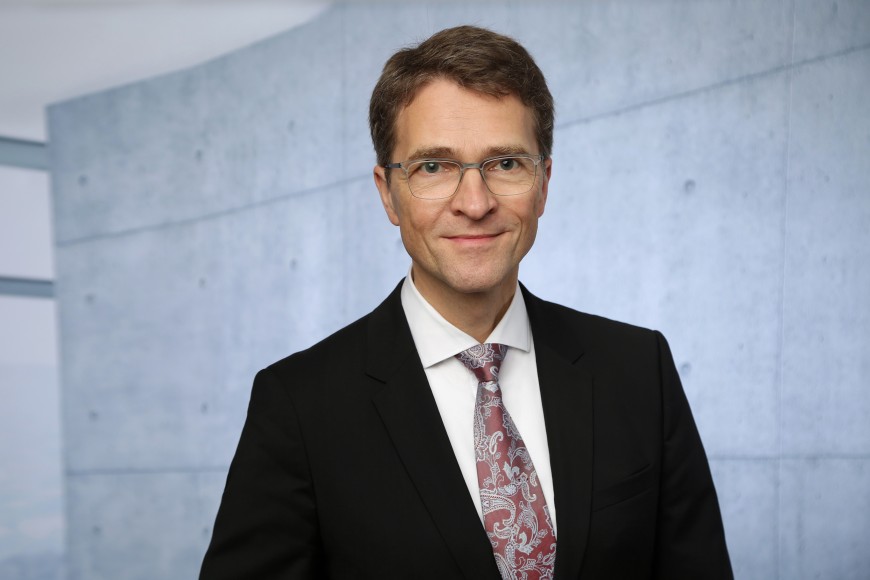A herculean effort
TU Vice President Heribert Warzecha on the digital summer semester
2020/04/15 by Astrid Ludwig
Professor Heribert Warzecha, Vice President for Academic Affairs and Diversity, explains how the corona crisis is impacting the summer semester that begins on 20 April.

Heribert Warzecha is a pharmacist and botanist, specialising in plant biotechnology and synthetic biology. He knows a lot about viruses and vaccines but pandemics were purely theoretical up to now. “None of us have ever been confronted with this type of situation”, he says. When the 51 year old took office as TU Vice President for Academic Affairs and Diversity in January 2020, he would never have dreamed “that the first measures would consist of turning the entire university on its head”. His position as Vice President on the Executive Board is actually a secondary position – which has now become a full-time position since the coronavirus paralysed public life.
For the first time in its history, TU Darmstadt will offer a primarily digital summer semester. Teaching courses for the around 24,000 students will be available online from the 20 April. TU Darmstadt has formed a crisis team, many of the members of the TU have switched over to mobile working practices and the campus and university buildings are largely closed at the current time. But for how long?
“We will initially proceed with caution up until June”, according to the Vice President. Depending on the current situation at the time, the university will then decide in agreement with the ministry which teaching courses – ones which cannot be held in digital form or only to a limited extent – can be resumed in face-to-face form under strict conditions. “Teaching also means comprehending. Laboratory experience and experiments are especially important in the natural or engineering sciences and cannot be entirely reproduced in virtual form. This also applies to excursions such as for the study of architecture”, says Heribert Warzecha.
TU Darmstadt had already been expanding its digital and e-learning content for many years. “Nevertheless, the fact that this now has to be organised across the board requires a herculean effect. It requires extra effort by all teachers and students”, says the professor. As the Vice President responsible for academic affairs, he emphasises: “We are trying to provide the best possible quality even under these conditions. It will be a reduced service but still one of high quality.” And it requires flexibility so that students can make up for what they have missed. Pragmatism is what is needed in this exceptional situation and, according to the Vice President, “we must find alternatives”.
Research is continuing at TU Darmstadt, although in shifts in the laboratories to reduce the number of researchers and maintain social distancing. This also applies to examinations, which are being distributed across multiple rooms. Warzecha knows from his own personal experience that oral examinations can also be held via video conference. According to the feedback he has received up to now: “our teachers are highly motivated and open-minded about the new situation”.
“We are trying to provide the best possible quality even under these conditions. It will be a reduced service but still one of high quality.”
The university is in constant contact with the state authorities. This is because one thing is already clear: Switching over to a completely digital semester not only means a huge amount of additional organisation but also significantly higher financial expenditure. The cost of the new technical equipment and software programs that now have to be purchased can quickly add up to hundreds of thousands of euros. Although the State of Hesse already planned to provide a total of 150 million euros between 2020 and 2024 as part of the “University Digital Pact”, this was before the corona pandemic. “An emergency fund such as the one available to businesses does not yet exist for universities but discussions are currently ongoing”, says the Vice President.
A decision on what form teaching at TU Darmstadt will take from June onwards will be made based on the situation at the time. Heribert Warzecha does not expect a return to normal operation. “It will no doubt be necessary to start to return to normal operation slowly at first.”
